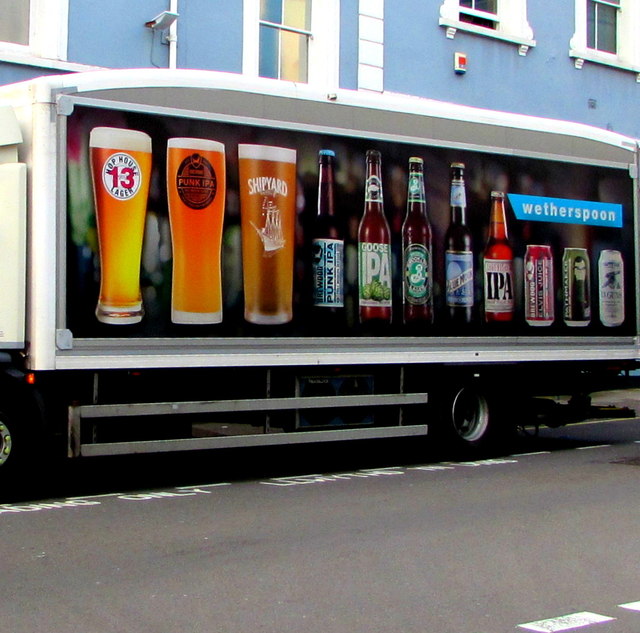J D Wetherspoon plc (LON:JDW) announced an update on current trading, before entering its close period for its interim results, for the six months ending 27 January 2019, which are expected to be announced on 15 March 2019.
Current trading
For the first 12 weeks of the second quarter (to 20 January 2019), like-for-like sales increased by 7.2% and total sales by 8.3%. In the year to date (25 weeks to 20 January 2019), like-for-like sales increased by 6.3% and total sales by 7.2%.
Property
Since the start of the financial year, the Company has opened 2 new pubs and sold 6. We intend to open between 5 and 10 pubs in the current financial year.
The Company has spent £56m in the year to date on buying the freeholds of pubs of which we were previously tenants.
Financial position
The Company remains in a sound financial position. Net debt at the end of this financial year is currently expected to be around £10m higher than the level at the last financial year end.
The Company has agreed a new 5 year revolving credit facility of £875 million (previous £820 million) on attractive financial terms. The new facility matures in January 2024.
Outlook
The chairman of J D Wetherspoon, Tim Martin, said:
“The most frequently asked question, regarding the future, relates to the impact of leaving the EU. I have argued that the UK – and therefore Wetherspoon – will benefit from a free-trade approach, by avoiding a ‘deal’ which involves the payment of £39billion to the EU, for which the House of Lords (appendix 1) has confirmed there is no legal liability.
“This approach also means that the UK, without the agreement of the EU, can end some or all of the protectionist tariffs and quotas that apply on non-EU imports, including rice, oranges, bananas, coffee, wine, children’s clothes and over 12,000 other products – many of which are not produced in this country. Ending tariffs reduces prices for consumers, without loss of government income, since the proceeds are currently remitted to Brussels.
“A good example of the EU’s protectionism, which is denied by many people, is the recent imposition of tariffs on Cambodian rice, which will inevitably increase prices for businesses and consumers (appendix 2).
“Sales growth has been strong since our last update. Costs, as previously indicated, are considerably higher than the previous year, especially labour, which has increased by about £30m in the period, but also in other areas, including interest, utilities, repairs and depreciation.
“Profit before tax in the first half is expected to be lower than the same period last year. Our expectations for the full year are unchanged.”
Appendix 1
Extracted from “Summary” of BREXIT AND THE EU BUDGET (page 3) (House of Lords / European Union Committee – 15th Report of Session 2016-17), 4 March 2017.
“… the strictly legal position of the UK on this issue appears to be strong. Article 50 provides for a ‘guillotine’ after two years if a withdrawal agreement is not reached unless all Member States, including the UK, agree to extend negotiations. Although there are competing interpretations, we conclude that if agreement is not reached, all EU law-including provisions concerning ongoing financial contributions and machinery for adjudication-will cease to apply, and the UK would be subject to no enforceable obligation to make any financial contribution at all.”
Appendix 2
Extract from Reuters, Business News, 16 January 2019
“The European Union will impose tariffs on rice from Cambodia and Myanmar from Friday to curb a surge in imports, the European Commission said on Wednesday…..
….The Commission, which oversees trade policy in the bloc, had proposed the tariff measures last year but failed to a get clear majority of the 28 EU states to back the plan in December…..
…..Cambodia and Myanmar benefit from the EU’s “Everything But Arms” scheme which allows the world’s least developed countries to export most goods to the European Union free of duties. But the Commission said its investigation had confirmed that a significant increase in imports of longer-grained Indica rice from Cambodia and Myanmar had damaged EU producers.
From Jan. 18 it will set a duty of 175 euros (£155) per tonne of rice in the first year, dropping to 150 euros in the second and 125 euros in year three, it said.
Cambodia and Myanmar already face losing their special access to the world’s largest trading bloc over their human rights records, although that potential sanction is separate from the rice safeguard measures.
The Commission said it had found that imports of Indica rice from the two countries had risen by 89 percent in the past five rice-growing seasons, and that a surge in cheap imports had reduced EU producers’ market share in Europe to 29 from 61 percent.
EU farming group Copa-Cogeca said it welcomed the Commission’s decision on Wednesday, saying it had recognised a critical situation in a sector that is vital for preventing an exodus from rural areas.”






































